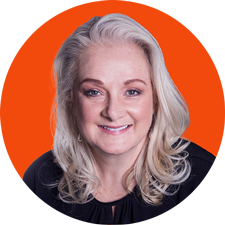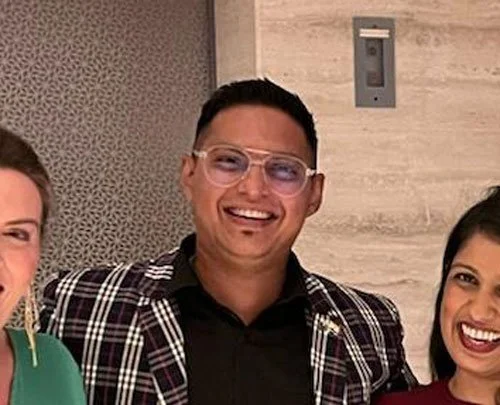Case studyMaxme x Austrade:
Building the Future of Human Skill Development Across Borders
Maxme India - Austrade experience
Maxme is 24 months into our India story. We have come so far and made incredible traction, thanks to significant efforts from many people both in Australia and India, yet it still feels like we are at the starting line. This is how I would summarise the India experience for anyone from Australia thinking of launching here. There are several reflections and lessons learnt that I wanted to share as I reflect on the last 24 months.
1. Who you have in your corner really matters
India is vast, majestic and complex. It cannot be done alone. You need support from those that have come before you and done the hard yards on your behalf. Relationships, trust and connections are everything over here. Austrade has been an incredible support and help to us over the last 18 months, and I honestly say that a significant part of any success we have or will have sits squarely in the work they do for us over here. I get emotional when I think about the role they have played for us and how they go above and beyond for our success. I must also call out my fellow Charter members from TiE (The indus valley entrepreneurs). A global network of amazing humans whose purpose is to give back and help others. And finally, the Big Leap program run by Jasmin Batra (and supported by the Australian Government) that sealed my thinking that India was the first place we were going to go to take Maxme global. Our India partner on this program THUB made the trip over to India informative and immersive and it truly was the beginning of where we find ourselves today.
2. Your team is everything and they need to be ready to work doubly hard to help
Members of the Maxme team from Australia have collectively made 15 trips over here in the last 24 months. I have the most incredibly giving team both in India and Australia and they are tireless in their pursuit of our vision for Maxme in India and how we are going to make a difference and add value. I personally have come here 8 times with the only other trip to India in 2018 when I had a Genpact team as part of my global role in Latitude Financial Services. When I came back in early 2023, I was gobsmacked at the progress since 2018. I have travelled to many corners of the world multiple times and have never seen the sort of progress I witnessed here in 4 short years.
Feet on the ground are non-negotiable as is having an India presence beyond Australia. We were able to establish a team on the ground here early and this has been critical to our success. “Doing India over zoom” will just not cut it. You must be here, learning, curious, meeting lots of people and building relationships and trust. This is needed before you sell a single thing to a single customer.
3. If you think India is waiting for your innovative product, think again!
India is educated, advancing at eye watering speed and hungry for growth and advancement. I am in awe of what I keep finding every time I go and with confidence, I can say just how much they can teach us about innovation, hustle and hunger to get ahead. India grows by the population of Australia every year and they are obsessed about educating their youth and advancing. I am so inspired by this and am humbled that they have seen value in what we have to offer. We have had to work hard to get product market fit right and to get our clients over here to help us do that. Its been a relentless effort over 18 months and I dint expect this to end anytime soon because India is changing so quickie and its needs are growing. We want to be here adding value and this means we need to keep up with what value really means and looks like.
4. India is a country of mini countries and a culture like no other to help
Thousands of dialects, cultures and cuisines all in one package. Indian people are the most generous, warm, kind, inviting people I have come to know. They find it hard to say no which means we have had to get far cleverer about reading between the lines and working out whether a yes is a no and continuing to try and sell our product to a particular customer or through a particular partner. India treats its guests like family with a level of generosity and help from the tiniest of encounters like nothing I have seen anywhere else in any other culture. The give back over here is really humbling but people in India are super savvy and very good at judging character and intent. If you keep coming with good intent and an ambition to make a difference in this incredible growth story, then you should be blessed with fruit after some time that you will not regret. But you will have to work hard for it. If you have the right attitude and come to India with the curiosity around what you can do to add value, then India will be very kind to you. A big part of knowing all of this must be attributed to the Austrade team over here. The team have incredible talent and passionate pursuit of making the most of the incredible relationship and friendship between Australia and India. We have treated our relationship with Austrade in the same way that we have treated our approach to India, with deep respect to their time and efforts. We have needed to be clear on what we are doing, why we are doing it and how they can help. If this is unclear then how can I expect Austrade to know what we need to be successful. They are fundamental to our success and have worked unbelievably hard to make the connections and build the trust that we have been able to avail ourselves of and leverage.
Commercialisation
In addition to growing our brand presence in India and getting our product to market fit right, the commercialisation model has been a key focus. Of course, all three are inextricably linked. Having worked with many people originating from India, and in and around Indian companies for decades, I knew that when making purchasing decisions, there is a strong expectation of quality for a competitive price point. The cost/quality trade-off is very real and the ability to convince people to spend money with us relies on the ability to show that there will be a solid outcome for an affordable price and worth the change effort and potential impact to reputation if things don't go to promise.
Against this backdrop, we spent around six months doing a lot of research in this area, talking to target personas in India and gauging what the market already has and what it is willing to pay. The other things we contend with is more human in nature and that is a person's willingness to stop what they are doing, that may not be serving them fully but still good enough in their eyes and try something new. This is not a unique challenge to India but with very busy and packed lives over there, the bandwidth to make change is small.
We took an India first approach to our services and knew early on that we couldn't deliver an outcome in India from Australia. We needed a local team who would deliver the outcomes to local expectations. Commercial models were based on a hybrid team across both India (Sales, marketing, delivery) and Australia (marketing operations, product and tech). We also took a three-pronged approach to business development
Direct Sales - we worked hard to find the right talent who understand what we are trying to achieve and can represent our brand well. A quick sale may be fantastic, but we are looking to grow our brand as well so need to be selling to the right clients in the right, sustainable way. We established a network of believers based on the acumen of our hired sales staff and their existing relationships, and we have been fortunate to secure paying clients through this network
Referral partners - people in the network that understand what we are trying to achieve in India and can see the difference that it will make for them, their children and for India long term. Once this belief and buy in is achieved through high value discussions and relationship building, our referral partners are comfortable to introduce us into their network. This is most often a commission-based arrangement with a certain % offered for an introduction and a further % offered if this introduction moves to a commercial outcome.
Partnerships - these differ to referral partners in that all business development is done by the partner and we do the delivery once the work has been sold. With some partners we share the cost of delivery because they also have local delivery teams that can deliver our programs post training and then split the profit. With other partners we share the revenue, and the rest is up to us.
Maximum flexibility was the key to commercial success here and key was keeping an open mind and great listening skills. This helped us stay close to what the local market prefers and has on offer.
We spent a considerable amount of time on a full go to market assessment and plan going into India but did not hold on to that too tightly or go into infinite cycles of sensitivity analysis because we knew our best learning would be done through doing and rapid iteration. Having a team on the ground was critical to this. Being rigid in India will kill your chances of success. Being too flexible will do the same. We worked out what our non-negotiables were - on price, quality and experience, and were flexible on the rest. Really important here is to NOT undersell your product because you aren't making a sale. The temptation is to keep reducing price but the saying “cheap is expensive in the end” is very true in India. The mindset is that if you go too low or don't charge, that you yourself don't believe that your product is premium so why should your customer. Having said that, we did run several pilots for no charge as a showcase event, given how we do what we do is still quite different to what is available in the India market. We saw this as quasi marketing and brand building and it helped us secure some important logos to reference (I am happy to say that most of these clients are now paying clients after the showcase). India is a market where you will be asked who else in India is a client. Referencing big brands from other geographies is less exciting to people in India than you would imagine.
Humans behind it
Sharath Nambiar
Austrade - Director for Trade and investment, Education South Asia
Keen to learn more?
We’d love to hear from you! Book a demo to discuss how our products & programs can benefit your people, teams & organisation.





